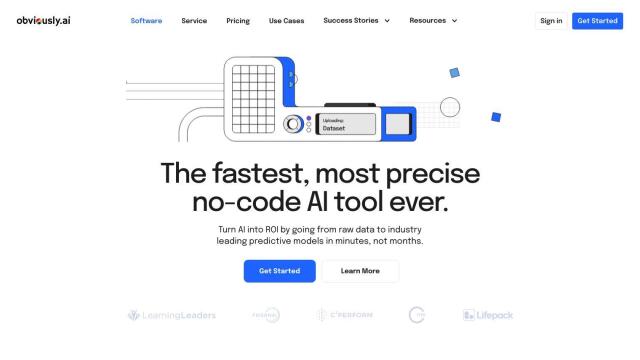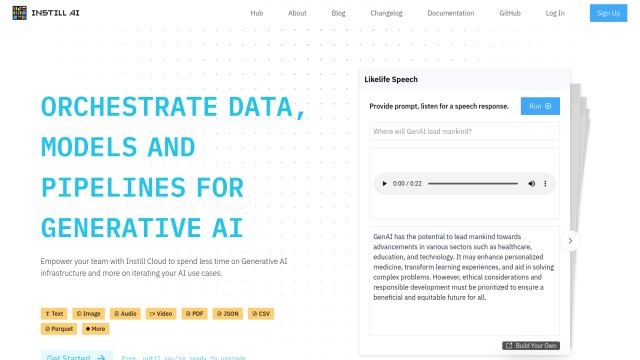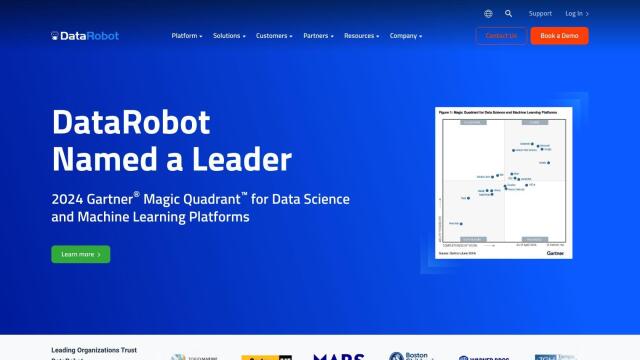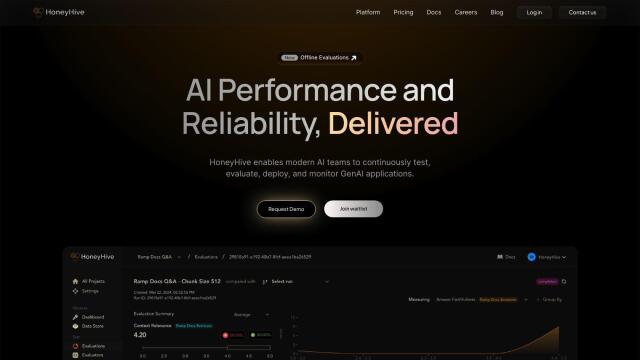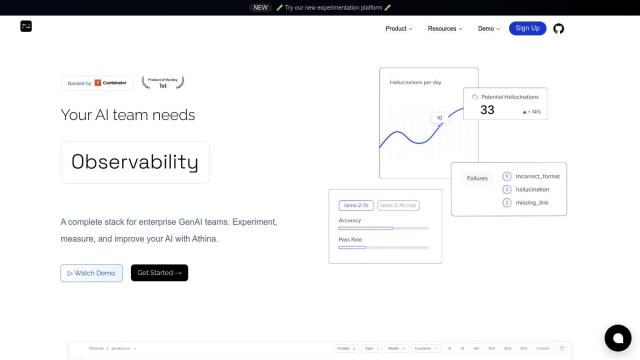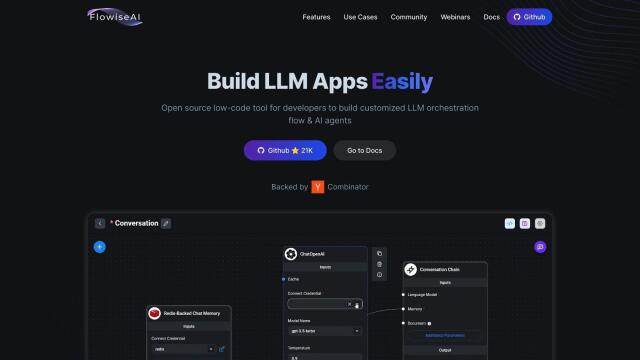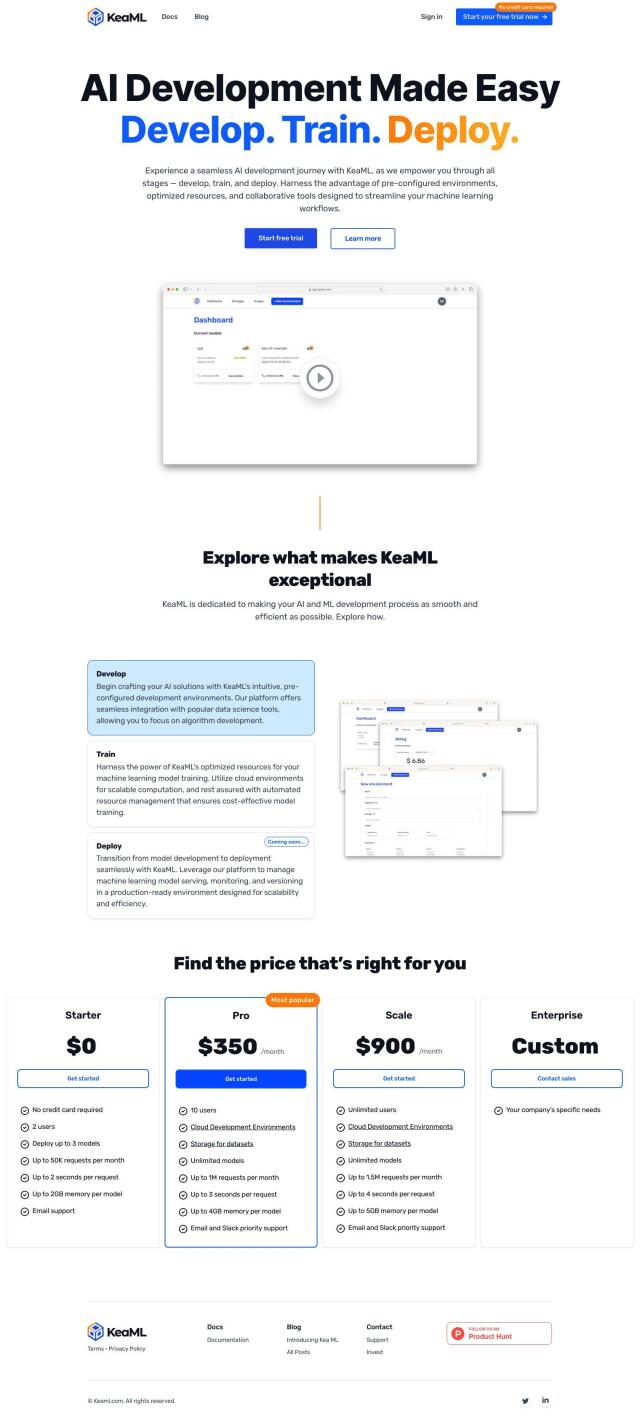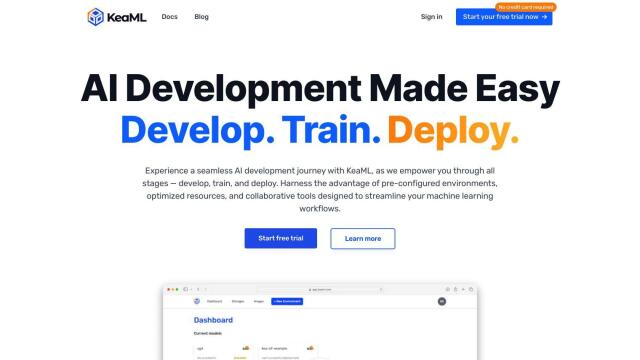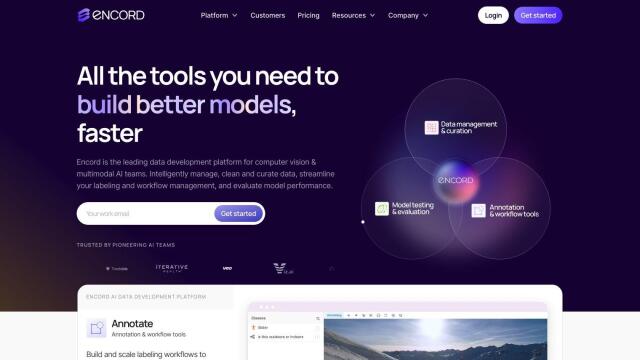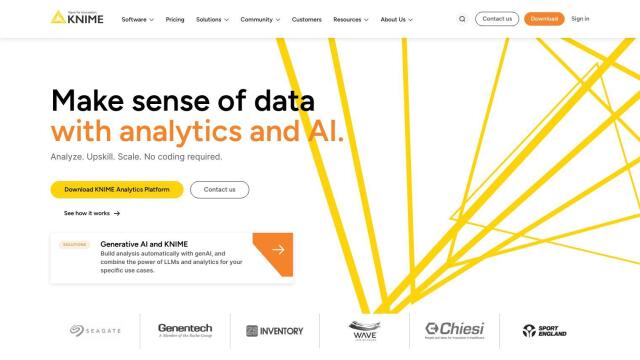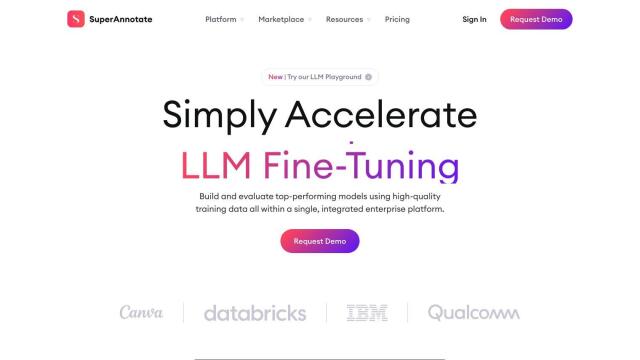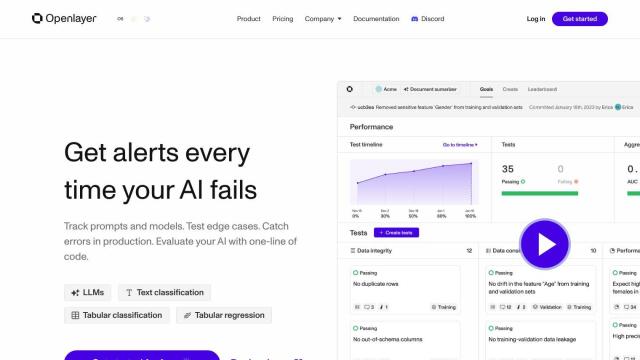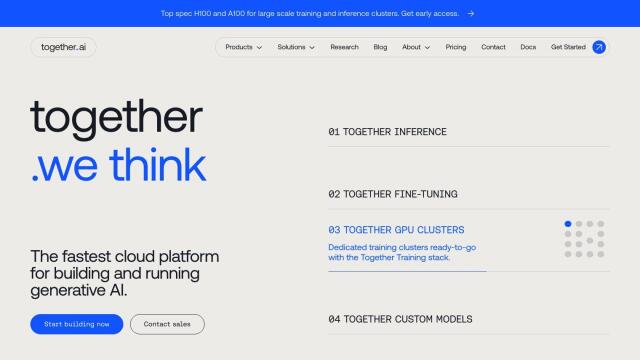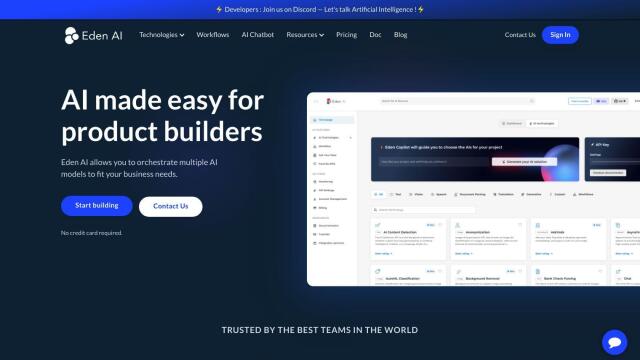Question: I'm looking for a solution that streamlines the machine learning process, from data preparation to deployment, in a collaborative environment.

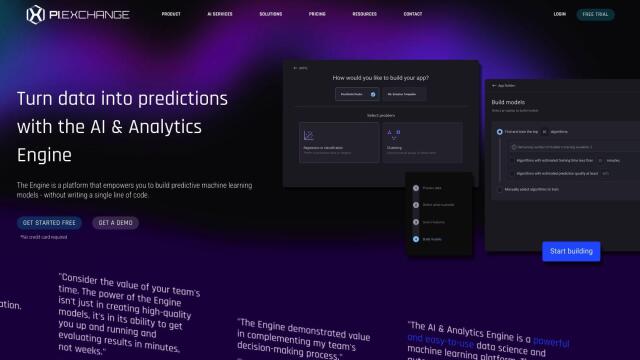
PI.EXCHANGE
If you're looking for an all-in-one solution to streamline the machine learning workflow from data ingestion to deployment in a collaborative setting, PI.EXCHANGE could be a good option. PI.EXCHANGE provides an end-to-end ML pipeline covering data ingestion, model development and deployment within a collaborative environment. It can handle a wide range of machine learning problem types and use cases across industries, with tiered pricing to suit different needs. The platform also comes with features like data visualization tools, optimal features and algorithms recommendations, and integration with different tools and platforms.


Dataloop
Another good option is Dataloop, an AI development platform that combines data curation, model management, pipeline orchestration, and human feedback to speed up AI application development. It's good at handling large amounts of unstructured data, automated preprocessing, and deploying AI models. Dataloop also offers a function-as-a-service, a marketplace for existing models and pipelines, and strong security controls, so it's a good option for teams that want to improve collaboration and streamline their ML workflows.

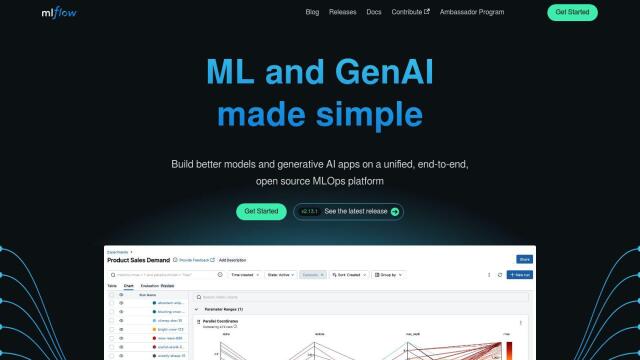
MLflow
If you prefer open-source options, MLflow is a good option. It's an end-to-end MLOps platform that covers the full lifecycle of ML projects, including experiment tracking, logging, and model management. MLflow supports popular deep learning and traditional machine learning libraries and has a lot of learning resources, so it's a good option for improving collaboration, transparency, and efficiency in ML workflows.

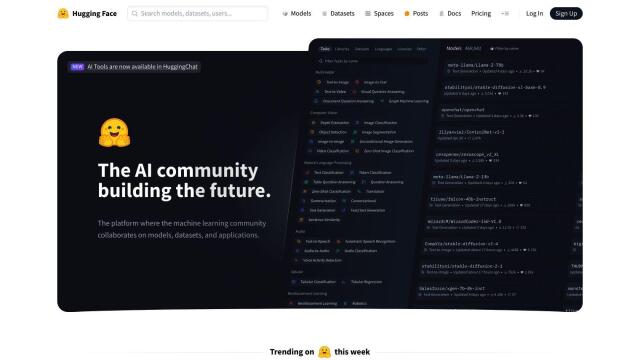
Hugging Face
Lastly, Hugging Face offers a broad ecosystem for model collaboration, dataset exploration, and application development. With more than 400,000 models for different tasks and access to 100,000 public datasets, it's a good environment for collaboration and development. Hugging Face also offers advanced features for enterprises, such as optimized compute options and private dataset management, so it's good for large-scale ML projects.



